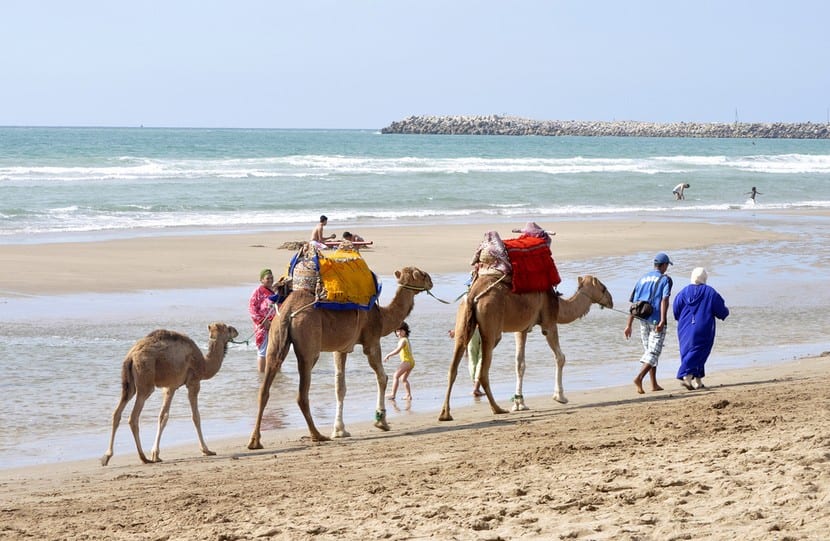
En MoroccoAs in all countries, there are a series of holidays and designated dates, some have to do with historical events in the country, others are religious holidays, and then the dates, which we could call global, such as Workers' Day, May 1, or March 8, International Women's Day. In addition to this, there are many pilgrimages and local festivities and the typical days of festivals, such as the almond blossom festival, the camel festival and many more that I will explain to you. So If you travel to Morocco I recommend that you check the dates in case you can coincide with some of these festivities, both for good, and enjoy them, or for "bad" in the sense that you can find many closed buildings or life during the day with low minimums, as in the case of coinciding with Ramadan.
In this article I will try to let you know what all these festivities and events are, but There is something that is also important to take into account, and that is that since Morocco is a predominantly Islamic country, many of its religious festivals are not celebrated on the same day each year, but depend on the lunar calendar.
Religious festivals
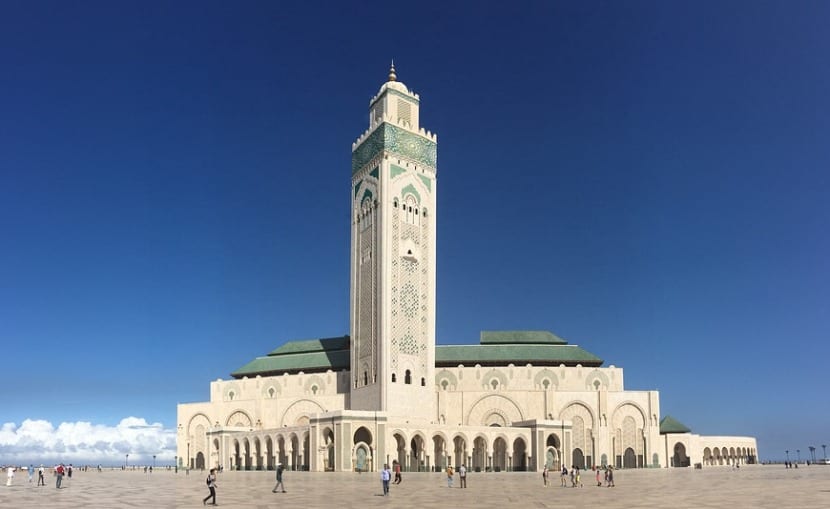
As I explained to you before religious (Islamic) holidays are governed by the hejira, is the lunar calendar, which is 11 days less than the Gregorian.
These celebrations are:
- Ras el-Sana, 1 of Muharram, muslim new year. Actually this day does not have much religious background, but many Muslims take advantage of the date to remember the life of the prophet Muhammad and the Hegira or emigration he made to Medina.
- Aid the-moult, 12 of Rabi auel, commemoration of the birth of Muhammad. The most common is to celebrate this day with the family and in the mosques. In the Maghreb, the anniversary of Muhammad's birth is associated with the idea of rites consisting of the 'amdah or qasidas', poems that praise the prophet and are recited especially on this day.
- Aid graver, from Du 10 to 13 Alhaya, the Feast of the Lamb and commemoration of the sacrifice of Abraham. It is celebrated by Muslims around the world with the offering of an animal sacrifice, commonly a cow or a lamb, as a thanksgiving to God for saving the life of Ishmael, the son of the prophet Abraham. The meat is separated into 3 thirds, one goes to the person or people who give the beast, another to distribute among relatives and the last third to those who need it, regardless of their religion, race or nationality.
- Aid el-Follow, when Ramadan ends. It is celebrated for three days and the night before the first day of this festival is particularly festive. In the early morning, the community gathers for different prayers and celebrates a breakfast that marks the end of the fast of the most important month for the Muslim world. The men wear new, white clothing that symbolizes purity. The entire day is celebrated in homes by eating the special dishes that are cooked for this occasion.
Historical festivities
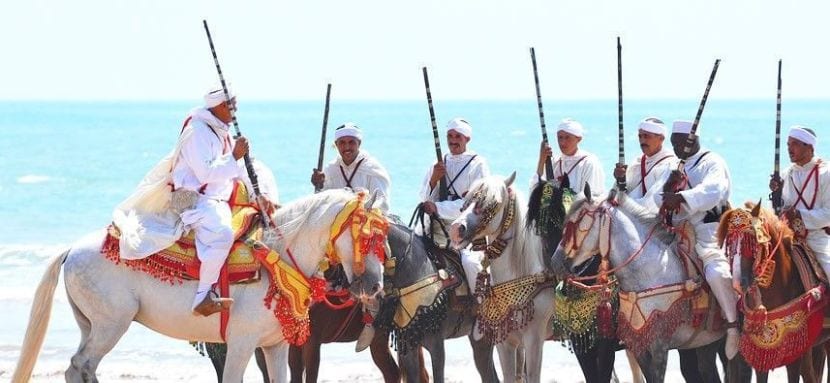
In Morocco there are a series of festivities associated with the historical passing of the country, such as:
- Loyalty Festival, celebrated on August 14
- Anniversary of the revolution of the King and the People, August 20. The Moroccan Revolution is remembered in which Mohammed V and his people joined in the fight for independence.
- Anniversary of the Green March. Commemoration of the march started on November 6, 1975 by Moroccan citizens and soldiers, under the orders of King Hassan II, in order to invade and annex Western Sahara.
- Independence party. Although the Independence of Morocco was achieved on March 2, 1956, Mohammed V did not proclaim it until November 18 of that same year and is the date on which it is celebrated.
Feast of the Throne
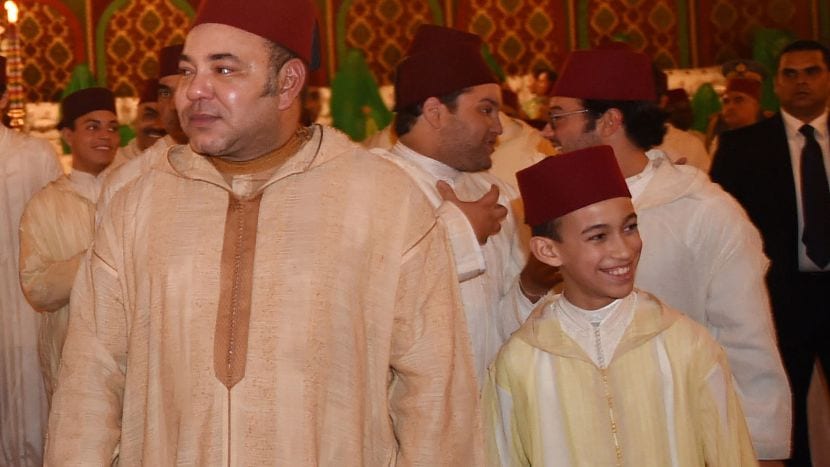
In Morocco the most important or symbolic festival is the Feast of the Throne, which at this time is July 30. It is a national celebration that commemorates the enthronement of the reigning sovereign, Mohamed VI. The Feast of the Throne is celebrated lavishly in the Royal Palace and revolves around the Moroccan royal family.
The origins of this festival date back to 1933, the year in which the enthronement of the current king's grandfather, Sultan Mohammad Yusuf, was celebrated and with the arrival of independence in 1956, it was further consolidated and helped to unite ties between the monarchy and the people of Morocco.
The ceremony of the Feast of the Throne includes the speech to the nation, an official reception, and it is used to decorate personalities from the cultural, scientific, political or sports fields.
Traditional festivals and events
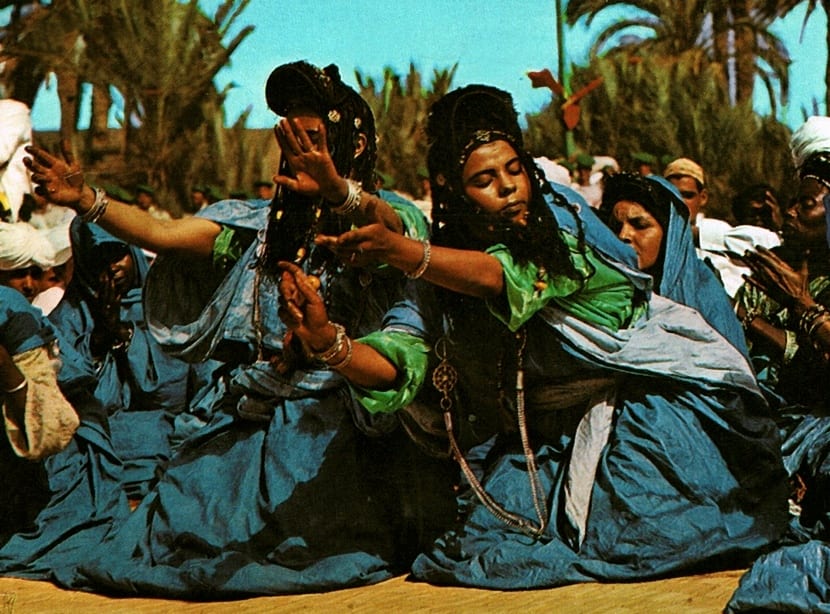
Some of the traditional events held in Morocco are:
- Fiesta de los Almendros, in the valley ameln, which is celebrated on the last days of February, with songs, dances and typical dances.
- Festival of Roses, in kalaat Mgouna, in the Valley of Data coinciding with the collection of the Damascus roses. During the festival there are dances, songs and a shower of petals.
- Desert Music Festival, in the region of Tafilalet in which artists from Arabia and Africa perform for a week. The music is varied, from blues to traditional folk compositions.
- Camel Festival, in guelmim. Today it has become a tourist attraction, although it retains the reminiscences of the original festival. The Guedra, a typical dance in which a woman dances to the sound of a drum as an offering to God.
These are a few, but throughout the year there are numerous cultural events throughout Morocco.
AS THAT IS NOT VERY WELL EXPLAINED FROM WHAT I ASKED !!!!
bitter old women callenseee